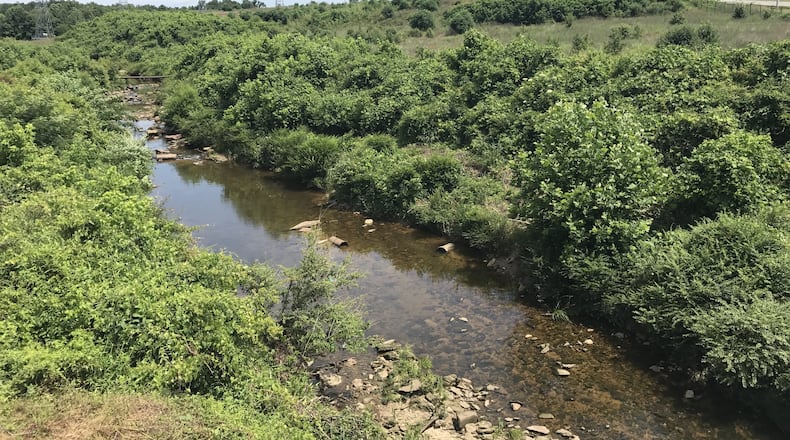The world’s busiest airport over the years hasn’t been the friendliest neighbor to the Flint River, which flows underneath it.
Now, the airport and major tenant Delta Air Lines are part of an effort to restore the river, which feeds agriculture for farmers in southwest Georgia, by reducing water use.
Hartsfield-Jackson International and Delta are contributing to a project on Spring Creek, a Flint tributary, to retrofit irrigation systems to reduce the use of groundwater. That is expected to help restore the flow of streams in the Flint River basin, and it is one of the projects aimed at restoring 30 million gallons of water to Georgia waterways.
At the airport, signs have gone up to collect virtual “pledges” from travelers who refill water bottles at stations in the terminal and concourses or who send a text message in support of the Flint River project and other projects across the country.
Oregon-based nonprofit Bonneville Environmental Foundation launched the initiative called “Change the Course” in Georgia and other areas.
The Flint River is a resource for drinking water, agriculture and manufacturing in southwest Georgia and fosters wildlife, Hartsfield-Jackson general manager Roosevelt Council said.
But here, “the river faces a wave of adversity, from storm-water runoff to pollution to drought conditions,” Council said at an event Wednesday. “Such conditions put a toll on the river, putting a strain on wildlife and reducing economic opportunities.”
The Flint’s headwaters are underground near the Delta Flight Museum on the north side of the airport. The river runs underneath the airfield and emerges just south of the airport and its fifth runway.
The airport and Atlanta’s vast amount of asphalt and concrete create impervious surfaces that keep water from being naturally absorbed into the ground. That directs runoff onto roads and into pipes, increasing water pollution and causing flooding when water rushes into rivers during rainstorms.
Multiple spills of fuel and other contaminants, including one last year, and leaks of underground storage tanks at the airport over the years can also cause pollution.
According to an airport environmental assessment, the Flint River was affected by a wastewater spill in 1997. The spill involved the release of 3,500 gallons of chromium-contaminated wastewater due to a faulty overflow sensor on a tank, according to the report issued this year.
A more recent fuel spill occurred at a Gate Gourmet facility, according to the environmental assessment.
“Everyone is aware that a drop of anything that hits the ground has the potential to go to the Flint River, so you have to really protect it in your everyday work,” said John Laughter, Delta’s senior vice president of corporate safety and security.
MYAJC.COM: REAL JOURNALISM. REAL LOCAL IMPACT.
AJC Business reporter Kelly Yamanouchi keeps you updated on the latest news about Hartsfield-Jackson International Airport, Delta Air Lines and the airline industry in metro Atlanta and beyond. You'll find more on myAJC.com, including these stories:
Never miss a minute of what's happening in local business news. Subscribe to myAJC.com.
In other Airlines news:
About the Author
Keep Reading
The Latest
Featured





